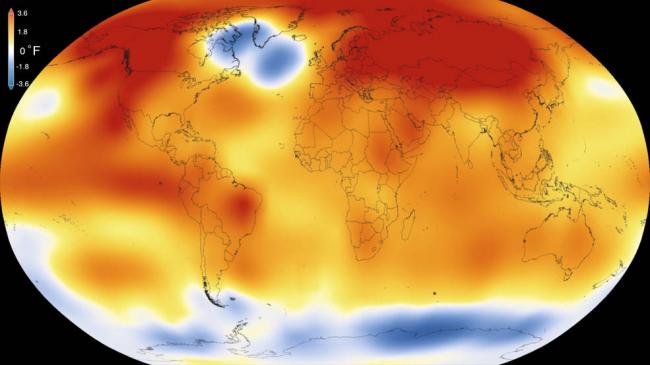
For 11th straight month, the globe was record warm: NOAA
For 2016 year to date (January-March), the average temperature for the globe was 2.07 degrees F above the 20th-century average, according to scientists from NOAA’s National Centers for Environmental Information, read the NOAA website.
This was the highest temperature for this period in the 1880–2016 record, surpassing the previous record set in 2015 by 0.50 degrees F. The globally averaged sea surface temperature for the year to date was also highest on record, surpassing the same period in 1998 by 0.42 degrees F, the last time a similar strength El Niño occurred.
For March, the average temperature for the globe was 2.20 degrees F above the 20th century average.
This was not only the highest for the month of March in the 1880-2016 record, but also the highest monthly temperature departure among all months on record, surpassing the previous all-time record set last month by 0.02 degrees F. March also marked the 11th consecutive month a monthly global temperature record has been broken, and is the longest such streak in NOAA’s 137-year climate record.
The Arctic was also impacted by record global heat. Arctic sea ice reached its maximum extent for the year at 5.61 million square miles March 24, the lowest annual maximum extent in the satellite record. This was 431,000 square miles below average and 5,000 square miles below the previous record from 2015.
Image credits: Scientific Visualization Studio/Goddard Space Flight Center
Support Our Journalism
We cannot do without you.. your contribution supports unbiased journalism
IBNS is not driven by any ism- not wokeism, not racism, not skewed secularism, not hyper right-wing or left liberal ideals, nor by any hardline religious beliefs or hyper nationalism. We want to serve you good old objective news, as they are. We do not judge or preach. We let people decide for themselves. We only try to present factual and well-sourced news.







